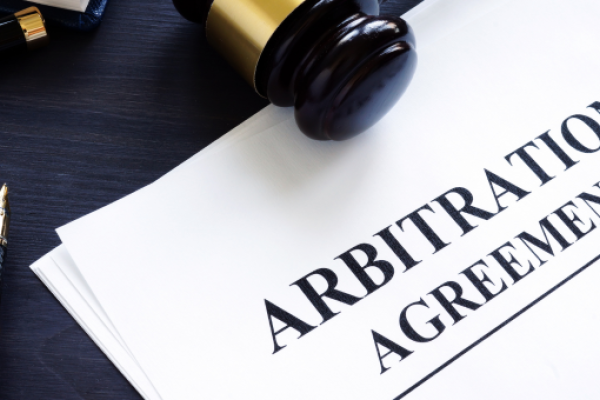
Ioannis Avgoustis
Published: February 07, 2024
Introduction
On 20 September 2023 the Supreme Court of the United Kingdom handed down its much-anticipated judgment in Republic of Mozambique (acting through its Attorney General) v. Privinvest Shipbuilding SAL (Holding) and others [2023] UKSC 32.
The appeal concerned the interpretation and application of section 9 of the Arbitration Act 1996 and, in particular, whether the claims of the Republic of Mozambique brought in the English High Court were “matters” within the scope of the relevant arbitration agreements.
Section 9 of the Arbitration Act 1996, gives the right to “a party to an arbitration agreement against whom legal proceedings are brought”, to apply to the court “in which the proceedings have been brought to stay the proceedings so far as they concern that matter". Section 9 had been the subject of conflicting decisions in the lower courts and the much-needed clarity now given by the Supreme Court is a significant development and welcome across arbitration practitioners.
Factual background
Three special purpose corporate vehicles (the “SPVs”) indirectly owned by the Republic of Mozambique entered into three supply contracts with certain of the defendants for the development of Mozambique’s Exclusive Economic Zone (“EEZ”) through fishing and the exploitation of its gas resources.
The first supply contract was entered into on or about 18 January 2013 (the “First Supply Contract”) for the supply of ships, aircraft and local infrastructure to enable Mozambique to police its coastline and its EEZ. The First Supply Contract provided under clause L that the contract would be governed by Swiss law and that “[a]ll disputes arising in connection with this Project… shall finally be settled by ICC Arbitration in n Genève, Switzerland”.
The second supply contract was entered into on or about 2 August 2013 (the “Second Supply Contract”) for the provision of assets and services to supply a large fishing fleet for Mozambique and included under clause J a choice of law and arbitration agreement similar to clause L of the First Supply Contract.
The third supply contract was entered into on or about 1 May 2014 (the “Third Supply Contract”, and together with the First Supply Contract and the Second Supply Contract the “Supply Contracts”) for the provision of assets and services to create a shipyard for the construction locally of vessels and other equipment of the offshore oil and gas industry as well as to offer maintenance and servicing of vessels. The Third Supply Contract provided under clause K that the contract would be governed by Swiss Law and that “any dispute, controversy or claim arising out of, or in relation to, this contract, including the validity, invalidity, breach or termination thereof, shall be resolved by arbitration in accordance with the Swiss Rules of International Arbitration of the Swiss Chambers’ Arbitration Institution…”
Between 28 February 2023 and 20 May 2014 the SPVs entered into loan agreements with various banks to finance the contract prices under the Supply Contracts. The SPV’s obligations under such loan agreements were guaranteed by the Republic of Mozambique. Each of the loan agreements and the guarantees contained an English choice of law clause and gave exclusive jurisdiction to the courts of England and Wales.
Mozambique commenced legal proceedings before the English courts claiming that various economic torts had been committed by Privinvest Shipbuilding SAL (Holding) and other defendants as a result of which the Mozambique had been allegedly exposed to a potential liability of approximately USD2billion (the “Claims”).
Certain of the defendants, namely the Privinvest companies, argued that Mozambique was bound by the arbitration agreements included in the Supply Contracts and applied for a stay under section 9 of the Arbitration Act 1996, section 9(4) of which provides that the court should stay proceedings “unless satisfied that the arbitration agreement is null and void, inoperative, or incapable of being performed.”
The Commercial Court found that the Claims were not “matters” within the scope of the arbitration agreements in the Supply Contracts. The stay application was, therefore, refused at first instance but was allowed by the Court of Appeal. Mozambique filed an appeal before the Supreme Court.
The Supreme Court judgment
The parties agreed that the court was to proceed on the assumption that the Mozambique was bound by the arbitration agreements. Therefore, the issue was whether the Claims were “matters” that fell within the scope of the arbitration agreements under section 9 of the Arbitration Act 1996.
The approach of the Supreme Court when deciding this issue was:
First, in the context of ascertaining whether a claim or dispute falls within the scope of an arbitration agreement pursuant to section 9, a two-stage process is involved, namely: (a) a court must identify the “matter” or “matters” in respect of which the legal proceedings are brought; and (b) the court must then ascertain whether the “matter” or “matters” fall within the scope of the arbitration agreement on its true construction. In applying the above process, the court should ascertain the substance of the dispute and take into account the defences raised, and not merely consider the pleadings.
Secondly, it is not necessary that the “matter” encompasses the entire dispute. IA qualified stay can be obtained (Section 9 (1) “… to stay the proceedings so far as they concern the matter”).
Thirdly, If the “matter” is not an essential element of the claim or of a relevant defence to that claim, it is not a matter in respect of which the legal proceedings are brought.
Fourthly, it is not sufficient merely to identify that an issue capable of constituting a dispute within the scope of an arbitration agreement without carrying out an evaluation of whether the issue is reasonably substantial and relevant to the outcome of the legal proceedings in respect of which the stay is sought.
The Claims involved allegations of bribery which had exposed Mozambique to substantial liabilities and specifically whether:
- the transactions, including both the Supply Agreements and the guarantees, were obtained through bribery; and
- the defendants had knowledge at the relevant time of the alleged illegality of the guarantees and the alleged lack of authority of Mozambique’s Minister of Finance to execute them.
These matters, and any reasonably foreseeable defences, were found by the Supreme Court not to be within the scope of the arbitration agreements since they did not require an examination of the validity of any of the Supply Agreements and, consequently, Mozambique’s appeal before the Supreme Court succeeded.
Comments
The Supreme Court judgment is a useful reminder that, although the English courts usually adopt a “pro-arbitration” approach, an arbitration agreement does not always encompass any and all disputes which may arise in relation to a particular agreement and attention should, therefore, be paid when drafting and/or negotiating an arbitration clause within a commercial contract. In case of doubt, Members are encouraged to include in their contracts model arbitration clauses carefully drafted by arbitral institutions, such as, for instance, the LMAA Arbitration Clause prepared by the London Maritime Arbitrators’ Association.
A further, and perhaps welcome consideration is that parties seeking to obtain commercial advantage by way of unlawful conduct - for example bribery or similar type activity – cannot assume that if uncovered their conduct will be shielded by private arbitral proceedings.





